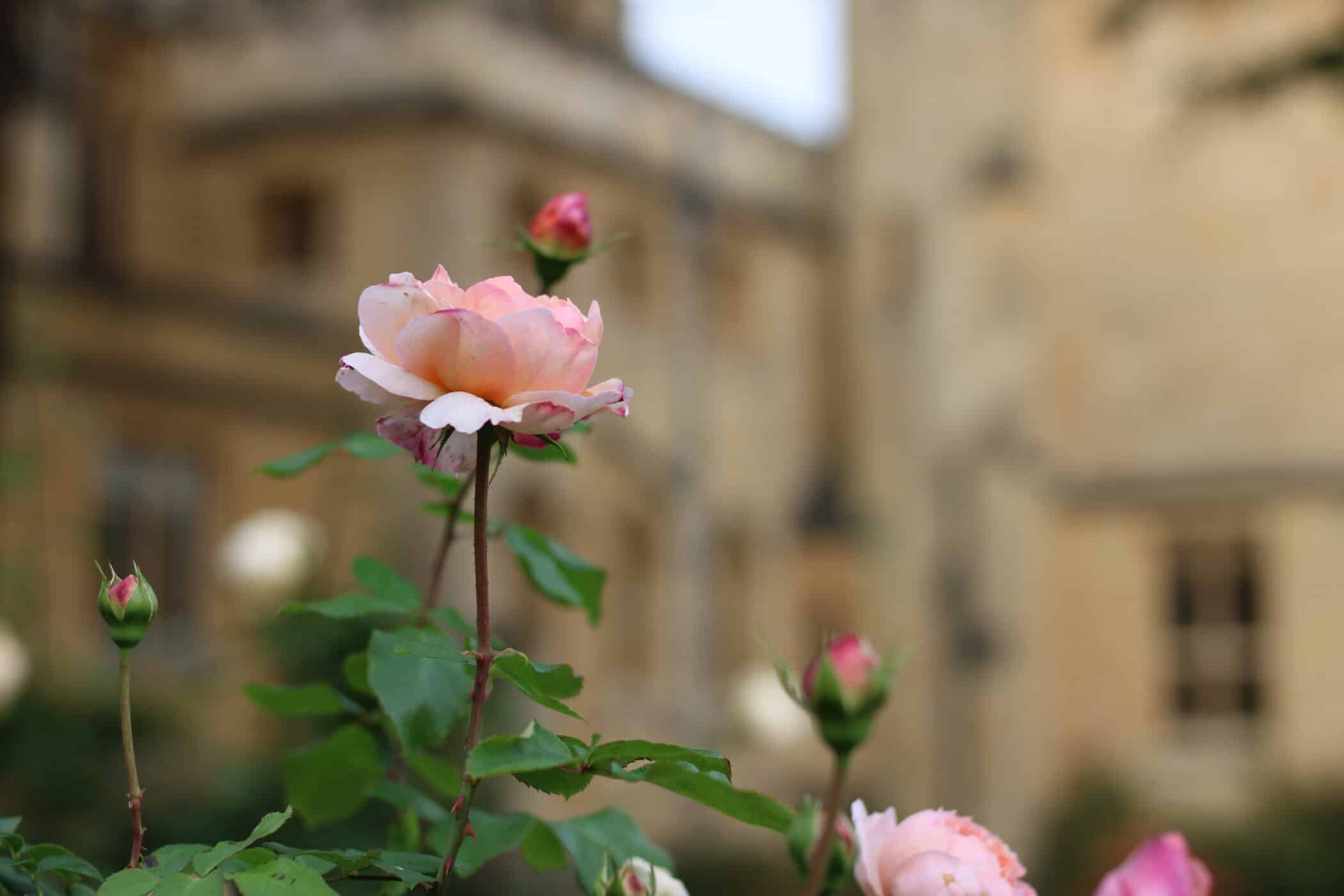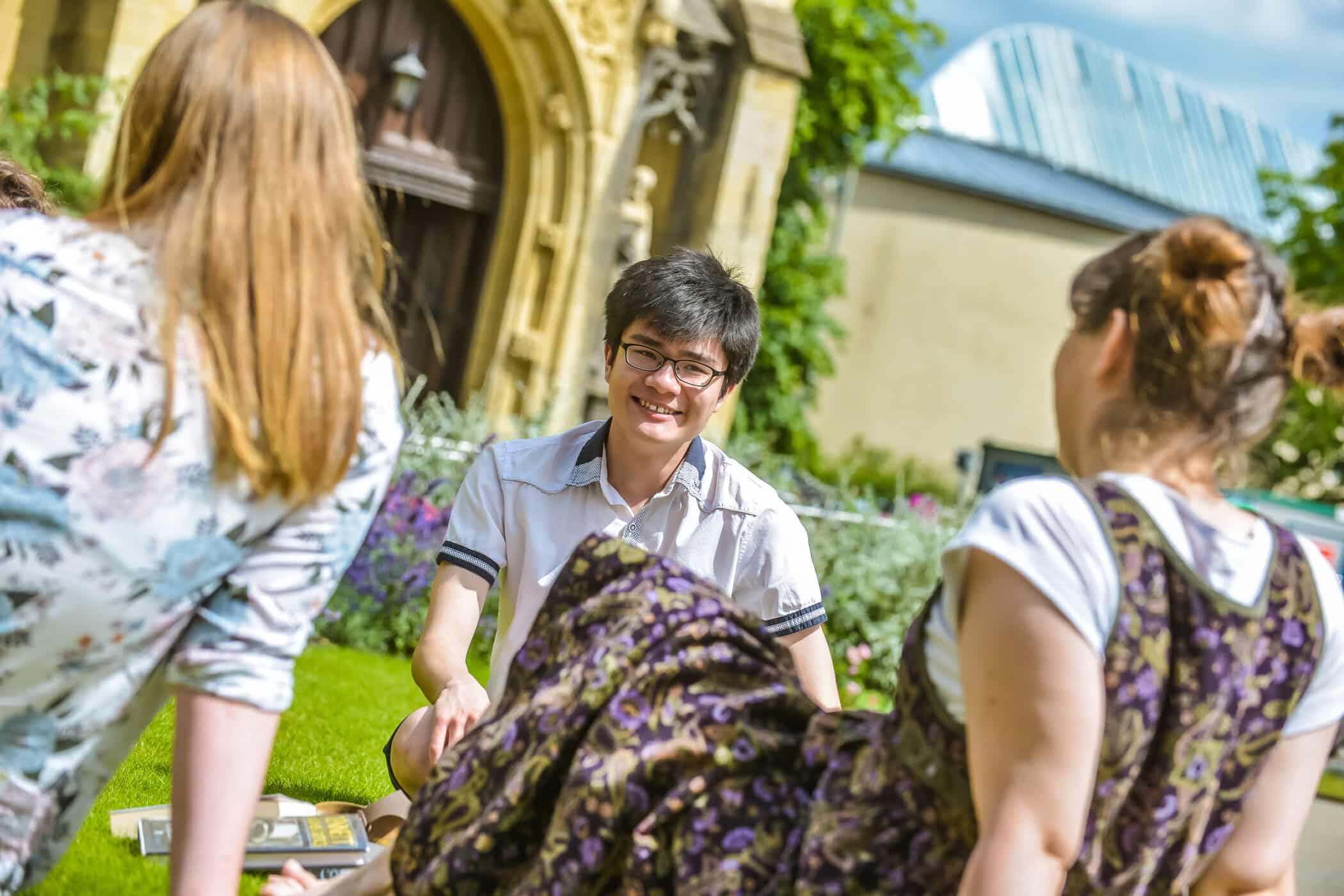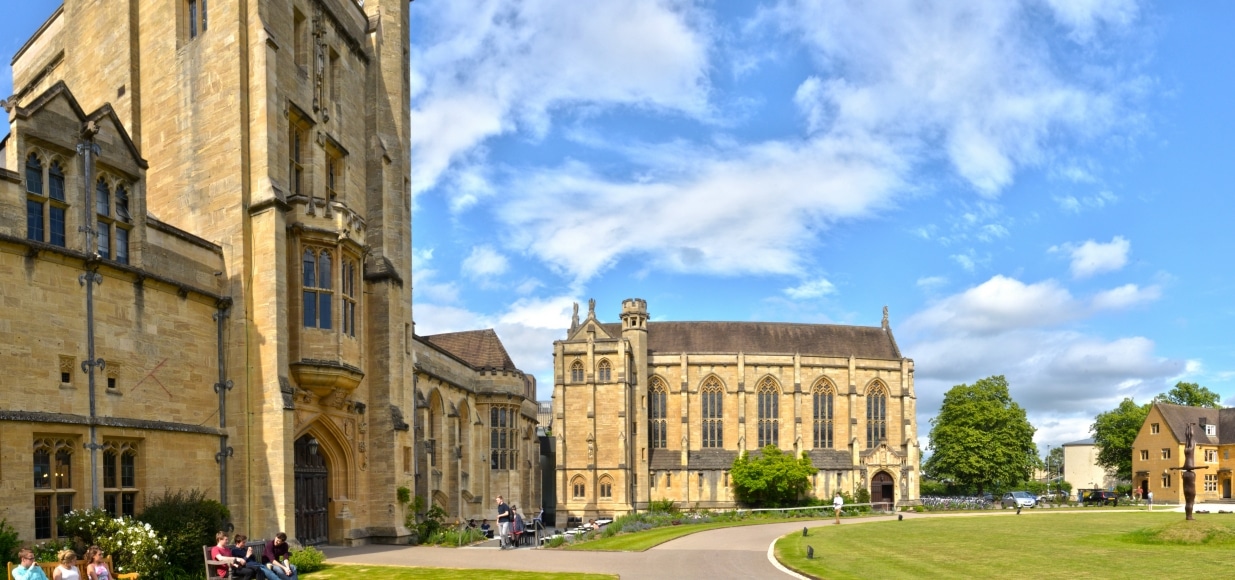Professor Robert Merrihew Adams FBA (1937-2024)
Theology, 1959
The College is very saddened to hear of the death of the distinguished academic philosopher, and Mansfield alumnus, Robert Merrihew (Bob) Adams.
Bob came to Mansfield from Princeton in 1959 to read for a second BA in Theology. After studying for his MA and PhD at Cornell, and a brief stint at The University of Michigan, he taught for many years in the Philosophy Department at UCLA. He moved to Yale in the early 1990s as the Clark Professor of Moral Philosophy and Metaphysics.
Bob retired from Yale in 2004 and returned to Mansfield as a Senior Research Fellow when his wife Marilyn McCord Adams (also a distinguished philosopher) was elected Regius Professor of Divinity at Christ Church. On Marylin’s retirement they returned to the US, and in 2009 he became a Distinguished Research Professor of Philosophy at the University of North Carolina at Chapel Hill.
Bob’s final academic post was from 2013 as a research professor at Rutgers University, where he was one of the founders of the Rutgers Center for the Philosophy of Religion. He was elected a Fellow of the American Academy of Arts and Sciences in 1991 and a Fellow of the British Academy in 2006.
Bob made major contributions to a number of fields, including early modern philosophy (esp. Leibniz), metaphysics, philosophy of religion, and ethics. He published numerous articles and five books, including Leibniz: Determinist, Theist, Idealist (OUP, 1994); Finite and Infinite Goods (OUP, 1999); and, most recently, What Is, and What Is In Itself: A Systematic Ontology (OUP, 2021). In person, he was thoughtful, creative, and open-minded.
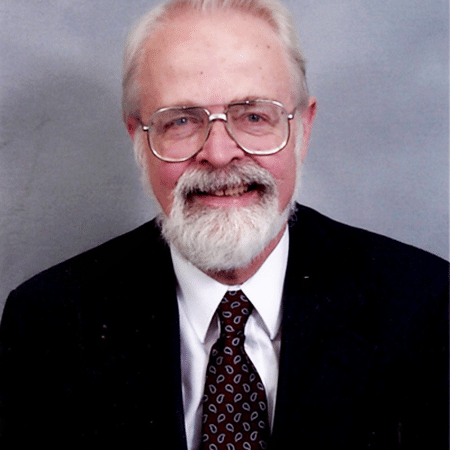
Paul Lodge, Professor of Philosophy and current Tutorial Fellow at Mansfield, who knew Bob well, describes him as “One of the leading Anglophone philosophers of his generation and one of the kindest people it has been my privilege to know.”
Paul Lodge, Professorial Fellow in Philosophy
Pete Betts CB, CBE (1959 - 2023)
History, 1978
I first met Pete on our first day at Mansfield in October 1978, both of us feeling a bit lost, both of us trying not to show it. We would go on to become friends for the next 45 years until he died aged 64 in October 2023.
At the time Mansfield had a reputation (or so we told ourselves) for accepting gifted but slightly maverick students who had been rejected by other colleges. Pete was an outstanding example of this: coming from a working-class background and arriving via the 11-plus and Emanuel School in Battersea. He felt something of an outsider at Oxford but would go on to make more of a difference to the world than any of his contemporaries. A warm and funny man with a taste for relentless self-mockery, he was, by his own admission, not the most diligent of students. One of the extra-curricular highlights of his time at Mansfield came as the impresario behind two cabarets of music, comedy and dance held in the main hall.
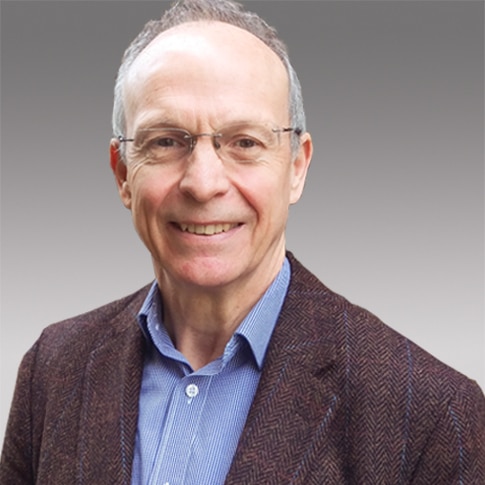
After Oxford, Pete joined the fast stream of the civil service in 1984, starting in the Department of the Environment but also spending time in the Treasury and UK representation in Brussels. However, he found what would become his defining role working on climate change. Where most civil servants tend to rotate between jobs every two or three years, he became an expert in his field, returning in 2008 as the senior civil servant dealing with international climate change. He would go on to become a veteran of climate diplomacy after a series of UN Climate Change Conferences or COPs and for six years he was lead negotiator for both the UK and the EU. Pete was not a typical civil servant or diplomat but perhaps that was part of what made him so successful at both.
The crowning achievement of his career came at COP 21 in Paris in 2015. Following painstaking negotiations, the Paris Agreement was adopted: the first global treaty compelling governments around the world to act on the climate crisis, committing them to keep global temperatures well below 2°C above pre-industrial levels and preferably below 1.5°C. As former Conservative Environment Secretary John Selwyn Gummer, Lord Deben, said at his funeral, Paris would not have happened without Pete and a handful of others around the world.
Pete was also one of the founders of the Cartagena Dialogue, a group of negotiators from developed and developing countries who seek to work together to advance ambitious climate action. Though he was honoured with both a CBE and Companion of the Order of the Bath for his work, another measure of his contribution was the tributes that came from across the climate community in the wake of his death, including at the opening session of COP 28 in the UAE a day after his funeral.
Pete was diagnosed with glioblastoma, a malignant brain tumour, in March 2022 and given a median life expectancy of 15 months. He met his diagnosis with typical humour and honesty and turned it into an opportunity to spend valuable time with his wife Fiona, deepen his many friendships and write a book on the climate and where we go from here. A celebration of his life in October 2023 was attended by climate change negotiators from around the world and by climate change ministers from all three political parties. He is survived by Fiona, his parents and his sister Susan.
Jules Birch (English, 1978)
Charles Brock (1935 - 2023)
College Chaplain, 1965-1998
The loss of the Reverend Charles Brock, on 1 November 2023, was felt keenly at Mansfield.
For so many at College, it is hard to remember a time when Charles was not an active part of our community: arriving to study here for his MLitt Theology in 1967, perhaps little knowing how long and enduring his relationship with Mansfield would become. I can however imagine that his unending enthusiasm, vivacious personality, and great intellectual curiosity, marked him out as extraordinary even then.
It is with great affection and esteem that we now remember his many roles at Mansfield: postgraduate student; Chaplain; Theological Fellow; Director of Ministerial Education; member of the College Finance Committee; SCR Steward; Bancroft Fellow; and no doubt others unrecorded.
Charles and his late wife Carolyn, who for many years was the Director of the Mansfield Choir, were a central part of the College. Those present at the time recall that Mansfield’s progression from a theological seminary to an Oxford College with full University status, owes a great deal to Charles. Over this period, as a much respected and engaging Chaplain, he succeeded in bringing people together to achieve this change, helping steer the College through a potentially difficult and divisive period in its history.
“Charles Brock [was] a colourful and liberal Chaplain, who epitomised the atmosphere of change in his spiritual generosity and mischievous sense of humour. The ease of passage of the College into a new relationship with its religious origins was due in no small part to his vision.’
One of Charles’ great academic interests was in the relation of Theology to 19th- and 20th-century psychology and sociology, and in how sacred beliefs are relevant at an individual and societal level. This intellectual interest informed how he lived: as a scholarly teacher of many generations of Oxford students, who were as important to him as the congregants of the United Reform Church in Wheatley, which he led for many years. He set an example to successive ordinands and students at Mansfield on the impact of open and liberal theology to the wider community.”
As recalled by Professor Michael Freeden, Emeritus Fellow, Mansfield College in Mansfield: Portrait of an Oxford College
“Mansfield is fortunate that Charles matched his generosity of spirit towards the College with very generous financial support too: from endowing the John Milton Fellowship in Politics, to faithfully supporting new building campaigns, the restoration of the College Organ and the refurbishment of the Library, as well as a generous legacy. Charles was one of our original Bancroft Fellows, Mansfield’s greatest honour for philanthropy.
Mansfield will miss Charles greatly and we extend our deepest sympathy to his widow Mary, and all his family.”
Helen Mountfield KC, Principal,
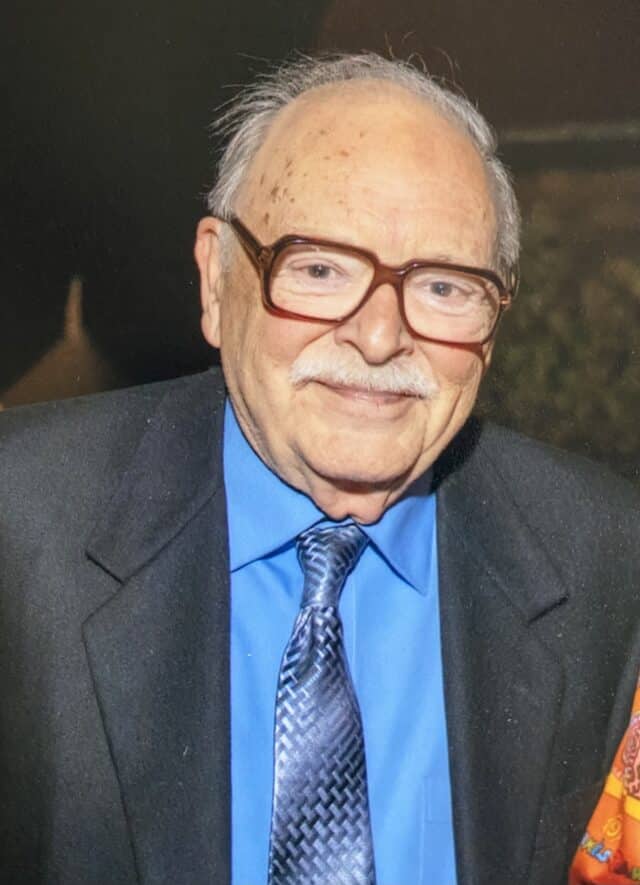
“A friend of mine – now a computer maestro – was a graduate student at Mansfield College in the mid-90s and filled-in from time to time in the College lodge. During that period, he married in the College Chapel, with Charles Brock officiating. Charles joined the wedding lunch and said he hadn’t enjoyed a wedding so much in a long time. Then he took the bridegroom aside and insisted on paying for everyone’s lunch.
That speaks volumes for Charles – his zest for social life, and his generosity. He and I met in the 1960s when we were both new to the College, and for decades to come I enjoyed his presence at the heart of the place in his social charisma, his expansive intellectual horizons and enthusiasms, and his unassertive religious intensity. He carried off his chosen role as an intellectual middleman with impeccable grace and friendliness. Typically, the College Politics Fellowship that he endowed commemorates not Charles Brock but John Milton, one of the figures he most venerated for intellectual range and ambition.
And he had a discriminating love of fine wine!”
Professor John Creaser, Emeritus Fellow in English, Mansfield College
“I was saddened to learn of the death of Charles Brock. We established a good friendship in the years I was in Oxford (1957-63) and I have fond memories of the Brock family. More than that, it was Charles who officiated at my wedding service in the College Chapel in 1979 – so he had a lot to answer for!
The College is a different place now and it is right and proper that it should have grown from a modest nonconformist toehold on the mountain face of Anglican Oxford into the multi-disciplinary/multinational College that it is today. Charles played a significant role in that development, without losing the elements of friendship, humour and learning which have always been its characteristics.
Mansfield has lost a loving friend but gained a wealth of memory.”
Revd Peter Moth (Theology, 1960)
Robert Arthur Burns (1963 - 2023)
Lecturer in History, 1988-1992
It is with great sadness that we note the death of Arthur Burns, distinguished historian and good friend of the College.
Arthur taught Modern British History as a College Lecturer between 1988 and 1992, supplementing his Mansfield salary with a job as sub-editor for the journal Past & Present. He had been an undergraduate and graduate student at Balliol, but quickly became attached to Mansfield and enthusiastic about its educational ethos. A dedicated and conscientious tutor, Arthur went on to have an eminent subsequent career that was no surprise to those who knew him from this time.
He moved to a permanent position at King’s College London in 1992. A leading figure in the development of History at King’s, he served as Head of Department for several years. In addition, Arthur made an innovative contribution to the digital humanities. He was co-creator of the pioneering online resource CCEd (Clergy of the Church of England Database), and, subsequently, the Academic Director of the transatlantic Georgian Papers Programme.
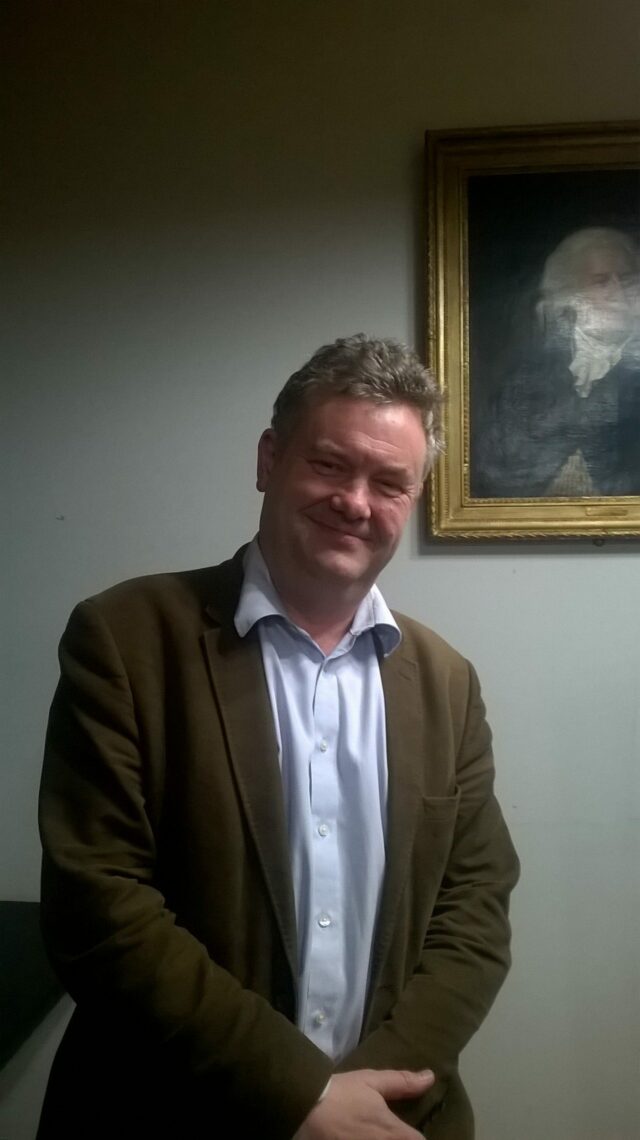
(c) the Telegraph
Arthur’s first book was a meticulously researched and imaginatively framed study of The Diocesan Revival in the Church of England c. 1800-1870 (Oxford, 1999). His wider interests in the dynamics of reform in Hanoverian Britain are reflected in the collected volume, co-edited with Joanna Innes, published as Rethinking the Age of Reform: Britain 1780-1850 (Cambridge, 2003). Arthur was also one of the editors (with Derek Keene and Andrew Saint) of St Paul’s: The Cathedral Church of London 604-2004 (Yale, 2004), a book which won the William MB Berger Prize for British Art History. More recently, Arthur was working on Christian socialism, focusing imaginatively on a single parish (Thaxted in Essex) through the 20th century. In recognition of his immense contribution to Anglican scholarship, he was presented with the Lanfranc Award for 2022 by the Archbishop of Canterbury.
Arthur also promoted the discipline through professional service. As a member of its governing council, he represented the Royal Historical Society in negotiations with the Conservative Government over proposed changes to the national curriculum (an experience that tested even Arthur’s legendary patience and optimism). He also chaired the Higher Education Committee of the Historical Association and was President of the Church of England Record Society.
Public engagement increasingly lent a little glitter to that unheralded professional service. Arthur’s television appearances include Tony Palmer’s film about Gustav Holst (Holst: In the Bleak Midwinter), and the Patsy Kensit episode of Who Do You Think You Are? A search of YouTube will also reveal Arthur talking with Michael Jibson – who played George III in the musical Hamilton – in Windsor Castle.
Watching these clips, those who remember Arthur will recognise his modesty, generosity, and enthusiasm. Such characteristics could lead people to underestimate him. Arthur was certainly kind and supportive, but also quietly ambitious, fiercely hardworking, and intellectually both remarkably quick and thoughtful. He might protest, but Arthur was an inspiring person: an admirable model of kindness and intellect combined. He was much loved and will be much missed.
Arthur was completely devoted to his family. Our thoughts are with them, and especially with Sarah Stockwell, and their three children.”
David Leopold, Associate Professor of Political Theory, and John Milton Fellow
Anthony (Tony) Coates (1937- 2024)
Theology, 1961
Tony arrived at Mansfield in 1961 with a degree in Modern Languages from Cambridge. John Marsh was Principal and George Caird Senior Tutor. He was always grateful to Caird for his lectures on the New Testament. At Mansfield, he was one of the first residents in the new Marsh Building.
After Mansfield he went to London, as Assistant Minister at the City Temple, a large church in the City of London. During his time there, he and other Mansfield ministers, led by Caryl Micklem, collaborated in producing the ground-breaking book ‘Contemporary Prayers for Public Worship’, in which God was addressed as ‘you’ rather than ‘thou’. After the City Temple Minister left, he successfully steered the church through a year’s vacancy, after which he left.
He was appointed in 1968 to the University of Keele as (the first) Free Church Chaplain to the University. Those were the difficult days of student unrest, and Tony was equally at home in the Senior Common Room and the Student Union. The Vice-Chancellor would sometimes turn to him for advice when he was confronted with a difficult and potentially explosive disciplinary situation. He also spoke in favour of a student before a university disciplinary panel. Tony admitted that he was never quite sure whether he was having a ministry of reconciliation or whether he was simply running with the hare and the hounds.
In 1972 he returned to Cambridge as the Minister of Emmanuel Church, where he had worshipped while a student. After ten years of fruitful and happy ministry, he and Anthea moved to Geneva on his appointment as an English Translator and Interpreter at the Language Service of World Council of Churches. As the one qualified theologian on the Language Service staff he was frequently consulted on technical theological matters. That was the beginning of his second parallel career as both an ordained minister and a linguist.
In 1985 he was called back to the service of the United Reformed Church, first as Minister of Redland Park Church Bristol, then as World Church and Mission Secretary of the Church, and finally to Hutton and Shenfield Union Church (Baptist and United Reformed) in suburban Essex.
In retirement he continued leading worship and with his language work, translating books, interpreting at world ecumenical conferences, the last being the 2010 Uniting General Council of the World Communion of Reformed Churches, and finally writing the English language minutes of the multilingual meetings of the governing bodies of the World Council of Churches and then the Conference of European Churches.
He finally retired in 2018, after the launch of his last translated book, from Spanish, ‘Emilio Castro: a Legacy of Passionate Ecumenism’, the biography of the WCC General Secretary in his Geneva days.
He died on 12 July 2024 leaving behind Anthea, his wife of 56 years.
Athena Coates
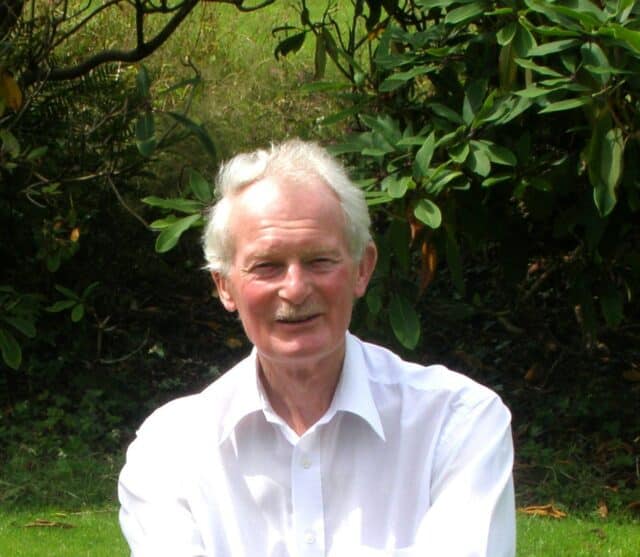
First impressions, if good, can sustain friendships that last a lifetime. Some of us at Mansfield first met Tony Coates when we went to Cambridge to share in a conference he was organising. He was calm, confident and competent and, as we got to know him better, very kind and very sensitive. These were some of the gifts he brought to a variety of different pastorates from London’s most famous Congregational Church, the City Temple, as Assistant. Then the first Free Church chaplain at Keele where he obviously inspired this new University (founded by a great Reformed Churchman and one time Master of Baliol, A D Lindsay) to short-list two more Mansfield students as possible successors. Later, ministry in another famous church, Redland Park, Bristol in a city noted for its ecumenism and finally Hutton and Shenfield. And Secretary of our World Church and Mission department.
A college ethos can shape vocations. Mansfield in the 1960’s was exceptionally ecumenical and international, perhaps since Fairbairn it has always been. Our first four Principals all studied in Germany. Marsh was active in the early formative years of the World Council of Churches (WCC), Sykes great with the Lutherans and Caird, an Observer at the Second Vatican Council (1962-1965) just as Coates was beginning his theological studies. They gave us first-hand accounts of what they had been up to in vacations and their enthusiasm for international Church unity with Peace and Justice was infectious- witness the careers of alumni: Lutheran Bill Rusch, Methodist Preman Niles, David Cornick and Tony Coates. Micklem was a founding father of the United Reformed Church that brought Congregationalists and Presbyterians together in 1972. He was also our best informed English Churchman about what Hitler was really doing to the Church and to the Jews.
Ecumenically, Tony’s greatest asset was being a brilliant linguist as well as a learned theologian. For nearly forty years, some of them in Geneva at the WCC, he translated countless documents and some major texts: Paulo Freire’s Learning to Question, A Pedagogy of Liberation from the Portuguese, Konrad Raiser’s Ecumenism in Transition that helped Raiser become the next General Secretary, Emilio Castro, A Legacy of Passionate Ecumenism from the Spanish.
May we all thank his wife Anthea and family for the loving support they gave our great friend.
Donald W Norwood (Theology, 1959)
Peter Warwick Cutts (1937-2024)
Theology, 1961
Peter was born on 4 June 1937 in Erdington, Birmingham. He attended King Edward VI High School in Birmingham, where he won an organ scholarship to Clare College, Cambridge. However, before beginning his studies, he completed two years of National Service. He was based in Aldershot and played piano in the Royal Army Service Corp Staff Band.
In 1958, he was finally able to take up his place to study music at Clare College. After graduating in 1961, he continued his studies at Mansfield where he gained a second degree in Theology.
In 1963, he moved to Huddersfield, starting work as a music lecturer – first at the Huddersfield Technical College and then at the Oastler School of Education. Finally, he was appointed as Warden and Lecturer in Music at Bretton Hall College of Higher Education, where he taught from 1968 to 1989.
He is fondly remembered by many of his students for his musical and teaching abilities, but also for his kindness to students and colleagues.
In 1989, Peter moved to Boston, USA, where he worked as Director of Music at Andover-Newton Theological School and as Director of Music at several local churches. He lived in Boston for sixteen years, finally retiring and returning to Huddersfield in 2005.
Peter was a talented organist and hymn composer. He composed over 130 hymn tunes, 90 of which have appeared in print. The best known is Bridegroom, which has been set to a number of texts. He was an active member of the Hymn Societies in both the UK and US. He shared in the Dunblane Consultations on new approaches to hymnody in the 1960s, and in 1975, he chaired the editorial committee for the United Reform Church supplement New Church Praise. In 1975, he revised Eric Routley’s English Speaking Hymnal Guide.
Peter never married. He enjoyed hosting enjoyable culinary evenings and at one point he was an occasional reviewer for The Good Food Guide. He loved to travel, frequently visiting Europe as a young man and then travelling widely within the United States and Canada whilst living in Boston.
Having lived an extremely independent life, Peter finally moved to a care home in 2021 and passed away peacefully on 26 January 2024.
Diane Clarke & Sue Jackson
Nigel Hall (1968-2024)
Modern History, 1988; MSt History, 1991; DPhil Economic and Social History, 1991
In memoriam by his fellow alumni:
‘The past is a foreign country: they do things differently there.’ A well-worn cliché perhaps, but when recalling Oxford in the late 1980s/early ‘90s it was indeed a place ‘submerged and obliterated’. Back then, it was all Bullingdon and Bolsheviks – now I suppose it’s all TikTok and lattes. This was the time of Withnail & I, Dead Poets Society, Four Weddings and a Funeral, the fall of the Berlin Wall, Nelson Mandela walked free and the collapse of the USSR. Putin, Elon Musk and Steve Jobs were but a glint in the milkman’s eye. The heady aroma of Brideshead was in the air even though Boys from the Blackstuff was our political landscape. Into this scene strode a figure who was part Uncle Jasper (sometimes Uncle Monty) part John Keating (‘O captain, my captain!’), part Falstaff (discretion being the better part of valour) and a great big Teddy bear all rolled into one, at ease equally in denims and bovver boots, black-tie and gown: Nigel Hall. Nigel was our JCR President, our Junior Dean, history tutor and porter over a decade at Mansfield. He was our friend, mentor and more than once, dispenser of the Junior Decanal bucket of whitewash that got us out of trouble. For so many of us, he was Mansfield.
My undergraduate recollections of Nigel from 1989-92 are of his highly successful tenure as President of the JCR, where he forged good relations with the SCR in something of a volatile period of relations (I recall at least). He was awarded an Exhibition and Scholarship and won the Mansfield Arts Essay Prize, but he had to work towards Finals in the aftermath of his father’s sudden and premature death in 1991. He remarked that taking the train home to his family was the saddest journey of his life and it was this momentous event that perhaps created the need to form a protective shield around himself, since he viewed life as a sort of cosmic joke thereafter and he presented as a wiser, more cynical, and self-deprecating Nigel.
It was my return to Mansfield in 1994 to study postgraduate history that brought me directly into Nigel’s sphere of influence. I took a room at the top of Principal’s Lodgings in the summer of 1994 and for the following year, spent many hours in his company. He was Junior Dean by this time, and his study in PL was a sight to behold. The working Bakelite telephone, leather armchairs, gramophone, typewriter, books stacked from floor to ceiling, desk overflowing with papers, tins of tobacco, pipe, (unmarked) essays, the ticking clock, and mullioned windows overlooking Rhodes House gardens. It was a step back in time, even then. Nigel – or ‘Deano’ as we came to call him, was working on his doctoral thesis, but also as college porter (and shared a love of jazz with the legendary Hugh Flint) and later as History tutor. (So, if you needed an essay extension you asked Nigel, if you wanted a taxi, you asked Nigel and if you needed access to the wine cellars – you asked Nigel). He was College computing officer something which his appearance belied but concealed a keen interest in the future of communications. He had the keys to the College wine cellars and we discovered some excellent vintages – Chateau Chasse-Spleen 1982, possibly the finest wine known to humanity. Sadly, in December 1994, it was Nigel who told me when I emerged from my room late one morning that our History Fellow and tutor Dr Mike Mahony had died the previous night. This was a shocking blow to the College, as Mike Mahony was an institution himself, very much the reason so many of us had applied to Mansfield (undergraduate historians of that era have also been saddened to learn recently of the early death of Professor Arthur Burns, who tutored many of us on 18/19th century English History back then as a post-doctoral lecturer).
Nigel and I both left our Oxford arcadia quite coincidentally at the same time, autumn 1998, Nigel after successfully gaining his DPhil and pursuing post-doctoral research projects including Institutional Research Fellow in the History Faculty, Research Fellow at the University of Essex and Senior Research Associate for the Cambridge project for the Book Trust. I drove Nigel and all his belongings back to his beloved Hoylake where I met his wonderful mother, and we parted company, our time together at an end. Although Nigel did not take up a permanent academic teaching post, he went on to publish almost a dozen peer-reviewed articles on the Liverpool raw cotton market c1850-1914 in academic journals from 1999 to 2022 which demonstrate his academic talent. He also appeared on TV and radio and lectured at Liverpool University. In his messages to me over the years he told me that he part-trained in the Anglican church (we relished the thought that he might become a college chaplain, but it was not to be) and he was churchwarden at St Hildeburgh’s parish church in Hoylake.
In recent times, Nigel wished he could go through the door back to his Oxford days. So do we all. I am reminded of the Philip Larkin poem, ‘Dockery & Son’ when the poet returns to college to find the door to his staircase locked – of course. The past is indeed a different country, but the memories remain open to us who knew Nigel at Mansfield, and we will always cherish his kindness, good humour, tolerance and patience, and the richness he brought to us in those halcyon years. Thank you, Deano.
Toby Purser (History, 1989)
Nigel was among my very best friends as an undergraduate – but that doesn’t mean I didn’t learn as much from him as those who saw him later as a tutor and mentor. His was an old and beautiful soul, one that delighted in shocking you out of your lazy ways of thinking and opening up the beauty of a world reimagined. I recall him packing and lighting a pipe, largely because he assured that it made all storytelling deeper and more meaningful, and also because it felt both olde worlde yet also subversive.
The world is a little sadder, a little less boisterous, a little less profound today, but his impact will reverberate in ways seen and unseen.
Simon Jones (English, 1988)
Nigel was a close friend at Mansfield, an older, good humoured, understanding and kind presence in my troubled and messy life there. He never lost faith in me, put up with my foibles, and encouraged me all the way to somehow getting my 2:1 and leaving with my head held high. He jokingly called me “Dickie” and “Filthy swine!” and was always full of good humour, funny anecdotes, but also sound and careful advice. He taught me 19th European politics in my second year, tolerating my late essays, my cheeky appearances without any work done, and my general sloppiness. He protected me. Nurtured me. Loved me like some slightly hopeless younger brother. When Dr Mike Mahony died suddenly in the Christmas holiday of 94/95, it was, I believe, Nigel who raised the College flag to half mast. It was with him we visited Mike’s widow. I hope the College will raise its flag to him now. Nigel was a true, eccentric gentleman and a man of love. May he rest in Peace and Rise in Glory.
Richard Washington (History, 1991)
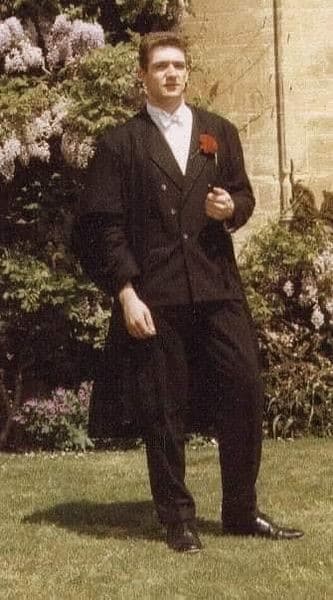
Nigel was a very warm and compassionate person who wore is vast intellect very lightly. I knew him in my capacity as curate and then associate vicar of St Hildeburgh’s Hoylake. Nigel was church warden in the parish for a number of years and was a great support, especially during the Covid pandemic, in which his technical skills were much in demand. He could also be asked to read the lesson at the main service and the sound of his measured, donnish tones added a touch of gravitas to our little sea-side parish. He was a much loved member of the church community and the news of his sudden passing has certainly been a source of great sadness.
Nigel and I were also members of the Liverpool Athenaeum. It was a real pleasure to see him in our two hundred year old club library, pouring over the most esoteric of texts with such evident delight. His true passion was always History and he spoke of Mansfield with such affection, especially his time as a junior Dean. His telling of ‘Stair Wars’ a spat between rival undergraduates, was much asked for as an after dinner tale. For me, Nigel will always be a genial font of historical knowledge, stood outside the church in his bow tie and tweed three piece in the early Sunday sunlight, smoking a roll up and waxing lyrical about Victorian cotton factors. Mansfield should be proud. May he rest in peace.
The Revd Dr J C Harrison
Stuart James (1973-2024)
PPE, 1992
It is with great sadness that I reflect on the events of Tuesday, 9 July 2024. On this day we lost a great friend and former Mansfield student, Stuart James. He leaves behind a loving wife and 3 fantastic children.
Stuart had the privilege of attending Mansfield between 1992 and 1995, reading PPE. Many from this time will no doubt remember Stuart well. The wonderful experience he had made a lasting impact upon his life, and Stuart cherished the lifelong friendships he made at Mansfield.
Anyone who remembers Stuart from his time at Mansfield will recall fondly his sense of style. Indeed, those who knew him will smile at the memory as they read this. Stuart had a unique sense of style to which he always remained true. Colour was the order of the day. Shiny trousers, sometimes a shiny shirt too, or at least a very brightly coloured one. The socks never matched either. He knew what he liked, and he wore it regardless of anyone’s opinion. I always admired that confidence.
That sense of confidence also spilled over onto the dance floor. Anyone who enjoyed a night out with the PPE crowd will remember Stuart’s dancing. They say you should dance like no-one is watching. Well, Stuart danced like no-one else was in the same postcode. His style was uniquely expressive and his energy boundless.
Following Mansfield, Stuart built a distinguished career in the legal profession which proved an ideal environment for his curious mind and great intellect.
Stuart had many qualities, including a profound tolerance of others. He was fascinated by difference and valued people based on whether they cared about others, were fundamentally decent, kind, and thoughtful. This explains the wide variety of friends Stuart made at Mansfield and reflects the extraordinary qualities of the man himself.
My Journey’s Just Begun by Ellen Brenneman
Don’t think of him as gone away, his journey’s just begun, life holds so many facets, this earth is only one.
Just think of him as resting from the sorrows and the tears, in a place of warmth and comfort, where there are no days and years.
Think how he must be wishing that we could know today, how nothing but our sadness can really pass away.
And think of him as living in the hearts of those he touched, for nothing loved is ever lost and he was loved so much.
Glen Smith (History, 19922)
Robert Ward Jackson (1956 - 2023)
Geography, 1974
Robert Ward Jackson, born in 1956 and a graduate of Mansfield in Geography, died on 17 April 2023. After his College years, Robert trained as an accountant and pursued a career in corporate finance in the City. In July 1978 he married Caroline, and together raised their children, Annabel and Matthew, later welcoming four granddaughters. Robert maintained lasting connections with his Mansfield contemporaries, many of whom attended the Service of Thanksgiving held in June to honour his memory. He will be fondly remembered and deeply missed by family, friends, and colleagues.
Caroline Jackson
Zahir Jamal (1950 - 2023)
English, 1968
Zahir Jamal died suddenly at his home in St Augustine, Florida on 29 June 2023, at the age of 73. Born in Dar es Salaam, Tanzania on 2 February 1950, Zahir was sent to school in England at an early age. He eventually earned a place at Mansfield to read English, graduating with a first in 1972. He had very fond memories of his years at Mansfield. At that time, the College was quite small and he enjoyed being part of a community that felt in many ways like a close family. Mansfield also held a special place in his heart as it was there that he met his wife, Janet (St Hugh’s), and they were married by George Caird in the College Chapel in November 1973.
After a brief stint teaching at Nottingham University, Zahir moved to New York to embark on a 25-year career with the United Nations Development Programme. With New York as his base, he and his family also lived for some time in Bangladesh, where he worked on such pressing development issues as flood mitigation measures. For a while, Zahir and his family also lived in Geneva, Switzerland, where he worked with the World Intellectual Property Organisation.
Back in New York, he was instrumental in producing a series of Arab Human Development Reports, which were received to wide acclaim. His skills as a writer were often called upon for report writing, speech writing, and press releases.
In retirement, he was able to spend more time on his hobbies, which included technology, guitar playing, and motorcycle riding. He will be remembered as a gifted wordsmith, but above all, as a kind and generous friend, and will be sorely missed. He is survived by his wife, Janet; two daughters, Leila and Hanna; and two granddaughters, Mina Lou and Sula Joan.
Anyone who would like to leave a message in memory of Zahir, please visit www.zahirjamal.com
Janet Jamal
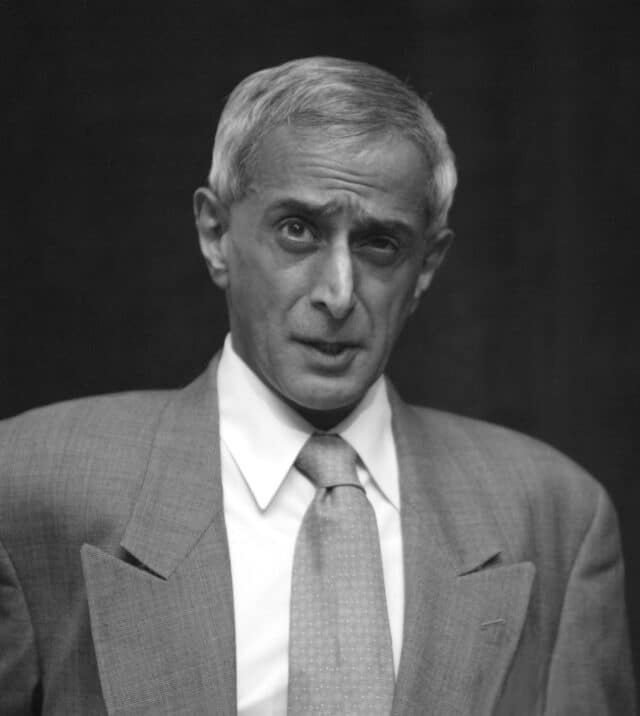
(c) the University of Delaware
Tom Leece (1990 - 2022)
MSt Modern British & European History, 2011
Tom, the younger son of John and Kate Leece, attended Homefield Preparatory School, Sutton and later King’s College School, Wimbledon. He matriculated in 2008 in the first mixed cohort of men and women at St Hilda’s. He was as much the life and soul of library study breaks as college bops, which he often attended wearing a crocodile onesie, regardless of the theme. He graduated, having perfected his punting skills, with first class honours in History and with many friends to whom he remained close. He then completed a master’s in Modern British & European History at Mansfield, a year which he very much enjoyed.
At the start of his journalism career, as a freelance TV critic, Tom wrote in a review of Borgen for the Independent, that the character who said ‘No one wants to read about the EU. It’s too complicated and unsexy’ had ‘got an eye for the elephant in every newspaper’s editor room’.
Tom entered that room when he became a sub-editor in 2013 at the Daily Mail and moved to the London Evening Standard in 2014, and then to The Times in 2018. At the time of his death Tom was a chief sub-editor at The Times and a much loved and respected colleague. One co-worker of Tom’s defined being a sub-editor as ‘the ability to bring order to the disorganised elements of a raw story, the inquisitiveness to question every facet of every fact, the instinct to know when things need sorting out and the initiative to just get on and do it. A natural way with words and simple desire to make things correct. Or to define it more succinctly: Tom.’
Tom was very glad that his Master of Studies at Mansfield enabled him to continue to use his talents as a scholar of history. In 2021, he started a part-time PhD at Trinity Hall, Cambridge researching the awarding of knighthoods in the Caroline period, to further our understanding of the role of honours in British culture and society.
Aside from his intellectual powers, Tom had enormous generosity of spirit, attentive curiosity, and humour. He was dubbed by friends as ‘the funniest man in the room’.
When Tom asked the love of his life Jessica Ferguson to marry him in 2019, he thought their biggest challenge in the run up to their wedding would be catering to the guest who had specified Guinness as a dietary requirement. Five months later, the world went into lockdown on account of the Covid-19 pandemic. Reflecting on the intervening time at their wedding in August 2021, Tom said ‘I know this past year has been different things to different people, at different times: an upheaval or an inconvenience; a setback or a success; an epiphany, a tragedy; an ending, or a new beginning. To me it has chiefly been a test of hope. And what I’ve come to understand, more than I ever knew before, is that to be with you is to be hopeful. To be with you is to believe in the best in people and to believe in tomorrow. So, while tonight is about tonight, I’d like my last toast to be to tomorrow.’
Thomas Robert John Leece was born on 6 March 1990. He died in a road traffic accident on 11 September 2022, aged 32.
Jessica Ferguson
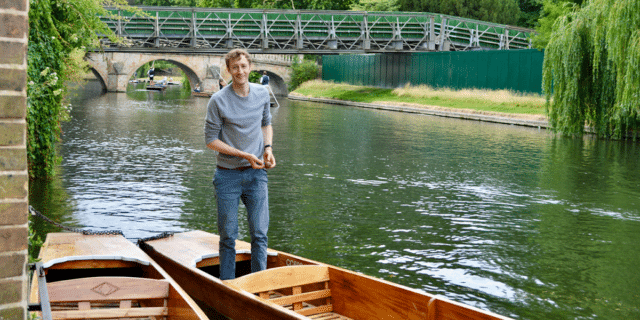
(c) University of Cambridge
Mason Lowance (1938 - 2022)
English, 1961
Mason Lowance, who died at Atlanta, Georgia, on 15 August 2022 after a distinguished career as an American academic, was one of Mansfield’s most devoted sons.
Having first majored in English & Religion at Princeton in 1960, he did a second BA in English Language & Literature at Mansfield in 1961, before returning to the States to complete a doctorate at Emory University in 1967. He then spent some 50 years teaching American literature for the University of Massachusetts, Amherst. His prolific career, initially focusing on Puritanism and later on slavery and abolitionism, included scores of articles, shorter publications, and some 13 books, notably The Language of Canaan: Metaphor and Symbol in New England Literature from the Puritans to the Transcendentalists (Harvard, 1980) and A House Divided: The Antebellum Slavery Debates in America, 1776-1865 (Princeton, 2003). Years at Amherst were interspersed with temporary posts at other universities, including a term at Corpus Christi.
But Mansfield was always dear to him: his almost annual visits were times of celebration; and he became a generous supporter of the College, endowing annual prizes awarded to the strongest undergraduates in each of the three years reading English — named after the 1960s tutors he remembered.
Mason is survived by his wife, Susan Coltrane Lowance, and their two daughters and two grandsons.
John Creaser, Emeritus Fellow in English
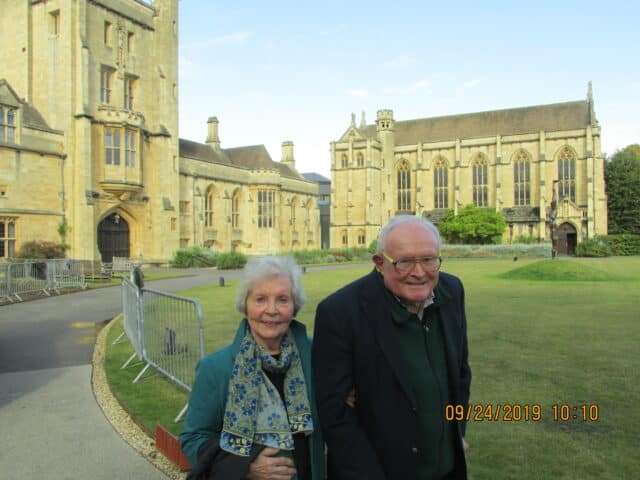
Anthony Lunch (1945 - 2022)
Geography, 1964
Anthony Lunch – Tony to his Oxford friends – who died in October 2022 after a short illness was one of those people blessed with natural charm and a constantly sunny disposition, coupled with the energy and drive to use those qualities to get things done.
After Sevenoaks School, where he developed an early talent for sailing, Tony took a gap year with Voluntary Service Overseas (VSO) as a teacher in what was then called The Gambia. The influence of that year would prove to have a major impact on his achievements in later life.
As for so many alumni, his Mansfield years were to provide a hugely rewarding time for Tony. His sailing skills saw him becoming a member of the successful OU Yacht Club team, latterly as Captain, winning against Cambridge in each of his three years, while his powers of persuasion got sailing upgraded to full Blue status in his final year. He was elected a member of Vincent’s which gave him much pleasure throughout his life.
Socially, the Mansfield years were of even greater importance, for Tony met his future wife Martine during her year as a Belgian student at one of the city’s English language schools. Tony and Martine remained an inseparable team throughout his life, proud parents of Nick, Chris and Cecilia and in due course proud grandparents of their six grandchildren.
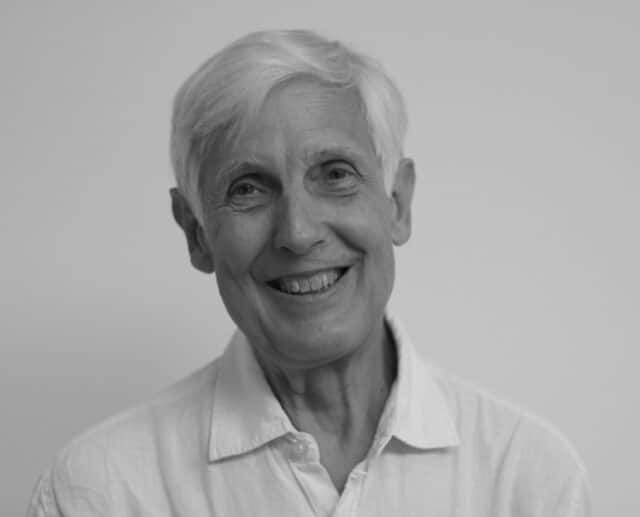
Armed with a “sporting third” – remember that in those prelapsarian days Seconds were not divided into 2.i and 2.ii – Tony joined Unilever as a graduate trainee, with postings in a number of countries. After some years in management roles he left the corporate sector, using his entrepreneurial experience to develop his gap year interest in volunteering and charity work.
He became a VSO Council member in the 1980s, and after a visit to Nepal in 1990 he founded the Sermathang Project, helping to educate children in a remote part of the country. In 2004 Tony broadened the scope of this activity with the formation of MondoChallenge, a charity sending volunteers to a range of countries in South Asia, Africa and South America to provide opportunities for schools, orphanages and small businesses. His vision of “People first, money second” is maintained by the charity today.
Despite his busy working life Tony found time to return to sailing, and not least to cement his contacts with Oxford and the OU Yacht Club, of which he was elected a Vice-President for sixteen years before becoming President in 2001, a post he held until 2018. He was elected member of the Royal Yacht Squadron at Cowes, and was a regular successful participant in Swallow races there. The final accolade was the presentation by The Princess Royal of a Lifetime Achievement Award on behalf of the Royal Yachting Association.
Tony never lost contact with Mansfield. An active member of the College’s Alumni Association and a generous contributor to College appeals, he also supported the College’s efforts to endow a Geography Fellowship, helping to promote academic excellence in his subject for future generations of students.
While Tony would have cringed at the modern cliché, the term “influencer” could have been coined with him in mind, for he “influenced” in the very best sense of the word. Full of ideas and the conviction, enthusiasm and energy to put them into practice, and blessed with a personality that brought individuals together, he was able to improve the wellbeing of many people across a range of countries. A life enjoyed and well-lived indeed. Tony, you are sorely missed.
Adrian Hall (Law, 1964) and Chris Horrocks (English, 1963)
David Ian Marquand (1934 – 2024)
In Memoriam: Professor David Ian Marquand
The College is very saddened to hear of the death of the distinguished academic and former Mansfield Principal, David Ian Marquand.
Principal Helen Mountfield KC shares her condolence:
“I was so sorry to learn of David’s death. A great thinker, friend, supporter and predecessor as Principal of Mansfield. He set the tone of the College I am so proud to lead. My great sympathy is with his wife, Judith – to whom he was so devoted – and David’s family”
To read the full obituary written by Professor Michael Freeden, please see below.
Professor David Ian Marquand (1934 – 2024)
Principal of Mansfield, 1996 – 2002
The Mansfield community mourns the passing of David Marquand FBA, FRHistS, FRSA. He was the first Principal to be elected after Mansfield obtained full collegiate status, an office which he graced with great distinction and flair during his tenure from 1996 to 2002. He was also the first Principal not required to be a member of the United Reformed Church. David arrived at the College having made a stellar mark in three overlapping careers: as a politician of the centre-left, as an academic with a succession of penetrating books on British social democracy, and as a sharp and stylish political commentator in high demand by the quality press.
David brought with him tolerance, congeniality, and an open and inquiring mind, cherishing and enhancing Mansfield’s friendly and informal atmosphere. From the outset he revitalised Mansfield’s goals and agenda, initially in two major fields. The first resulted in the receipt of a generous £2 million donation from Guy Hands, as part of a series of concerted efforts to put the College’s finances on a secure footing. It also involved consolidating the Development Office on a professional basis. By 2002, David’s persistent efforts within the University culminated in Mansfield’s admission to the list of recipient colleges for the College Contribution Fund system that disbursed money from wealthier to poorer colleges and was a lifeline to Mansfield’s future survival.
The second goal – one that associated Mansfield’s name beyond the University’s walls with a mission of social inclusivity and equality – was to focus on recruiting students from state schools and appointing an Access Officer. That outreach initiative was originally supported by the Sutton Trust (established by Sir Peter Lampl OBE) and set the College on a path that ultimately resulted in its attaining the highest proportion of state-school admissions of all the Oxbridge colleges. In addition, David oversaw the establishing of a College research post in dyslexia, funded by John Willis (Geography, 1980).
Alongside those institutional projects, David turned Mansfield into a hub of lively and stimulating activities, supported by a rich stream of guests and visitors from many spheres of public life, in particular politics and the arts. For this he drew on his contacts as a former Labour MP for Ashfield, as one involved in the early days of the Social Democratic Party, and as a heavyweight intellectual and cultural figure.
David’s staunch support of the European Union (he had been an advisor to Roy Jenkins when the latter was the President of the European Commission) was a factor in his chairing the Europaeum – an international consortium of European universities centred at Oxford and linked administratively to Mansfield – that offered postgraduate courses and financial support for selected students. His subsequent distress at Brexit was palpable.
In later life David became a champion of devolution and returned to his Welsh roots, both in joining Plaid Cymru and in moving from Oxford to Penarth. Yet his political views were principled and solid. Although his allegiances towards political parties on the left of the spectrum vacillated, he was largely the constant one, while the parties were shape-shifting around him.
David had an eminent academic career prior to joining the Mansfield community, holding chairs at Salford and Sheffield universities, and he was elected a Fellow of the British Academy in 1998. His magnum opus was a hefty political biography of Ramsay MacDonald, followed by a steady flow of trenchant analyses and critiques of British politics and society, including The Unprincipled Society, The Progressive Dilemma: From Lloyd George to Blair and The New Reckoning: Capitalism, States and Citizens.
David’s long partnership with his wife, Judith, was a mainstay of his life, buttressed by her own experience as a senior economist in the Civil Service and academic researcher and author, and by their shared political sympathies over many decades.
I first met David when I was a graduate student, listening to a fascinating talk he gave at Oxford. Many years later, we became friends during a conference in the pretty Italian town of Trani on the Adriatic coast, while sneaking out with our wives for a trip in the surrounding countryside. When the prospective vacancy for a new Mansfield Principal arose, David’s name was the first in my mind and I wrote to sound him out on behalf of the College’s search committee. David’s response was characteristically positive and thus was set in motion a new chapter in Mansfield’s life – and in David’s, in a post that he described as ‘the most enjoyable and worthwhile’ he’d ever had. He later wrote, referring to his mainly political nonconformity: ‘How could I not be in love with the only Oxford College to have a portrait of Cromwell hanging in the place of honour in its SCR?’ We were all fortunate to have had such a vigorous, knowledgeable and committed advocate for the College, a man of warmth and vision in whose care Mansfield’s flourishing could be – and was – wholly entrusted.
Professor Michael Freeden, Emeritus Fellow in Politics
Rev John William Muir (1938–2024)
Rev John William Muir (BA Theology, 1959), died 2nd Oct 2024, aged 86
Ordained into Congregational Church in 1962
1962 – 1965: Minister, Exmouth Cromer Avenue Congregational Church, Devon; Chaplain, Exmouth Cottage Hospital
1965 – 1969: Minister, Low Fell Congregational Church, Newcastle
Joined Council for World Mission
1970 – 1975: Minister, United Church of Zambia, Kitwe, Zambia
1975 – 1978: Lecturer, Zambia Institute of Technology, Kitwe, Zambia; Director, Samaritans
Moved to Church of England
1978: Chichester Theological College
1978 – 1980: Curate, Brighouse Parish Church, Diocese of Wakefield
Dec 1978: Ordained Deacon, Wakefield Cathedral
July 1979: Ordained Priest, Wakefield Cathedral
1980 – 1987: Vicar, Parish of Northowram, Diocese of Wakefield
1987 – 2001: Vicar of Sowerby, Diocese of Wakefield
2000: Appointed Honorary Freeman of the Borough of Calderdale
2002 – 2009: Lecturer, Halifax Parish Church (now Halifax Minster), Diocese of Wakefield.
Daniel Premaseelan Niles (1937-2023)
Theology, 1960
Dr D Preman Niles passed away peacefully on 3 August 2023 in Beckenham. Preman was born on 5 April 1937 to DT Niles and Dulcie Niles in Jaffna, Sri Lanka. He would often say that one of his proudest moments was when his friend described him as ‘representing five generations of faith’. Like his father before him (and his daughter after him), Preman dedicated his life to the service of God as a theologian, scholar and a teacher. He was a loving husband to his wife, Sherina Niles, who predeceased him on 2 August 2022, and with whom he enjoyed 59 years of marriage. He was also a wonderful father to his three children, Damayanthi, Radhika and Dharman.
Preman will be remembered as a visionary ecumenical leader who played a pivotal role in the development of Asian contextual and liberation theology. His passion was to mentor and inspire future generations in a global and ecumenical vision of the Church – a passion that took him to every corner of the world in furtherance of God’s mission. In 1991, he became the third General Secretary of the Council for World Missions (CWM) in London. He and his team worked tirelessly to ensure that the CWM was on firm footing both theologically and financially, so that it could continue to serve the larger Christian mission for the generations that followed. Prior to that, Preman served as the Director of the Ecumenical Process of Commitment of Churches to Justice, Peace, and Integrity of Creation (JPIC) at the World Council of Churches (WCC) in Geneva Switzerland; Visiting Professor at the Christian Theological Seminary (Disciples of Christ) in Indianapolis, USA; Associate General Secretary and Secretary of Theological Concerns at the Christian Conference of Asia (CCA) in Singapore; and Dean and Professor of Old Testament at the Theological College of Lanka (TCL), in Pilimathalawa Sri Lanka.
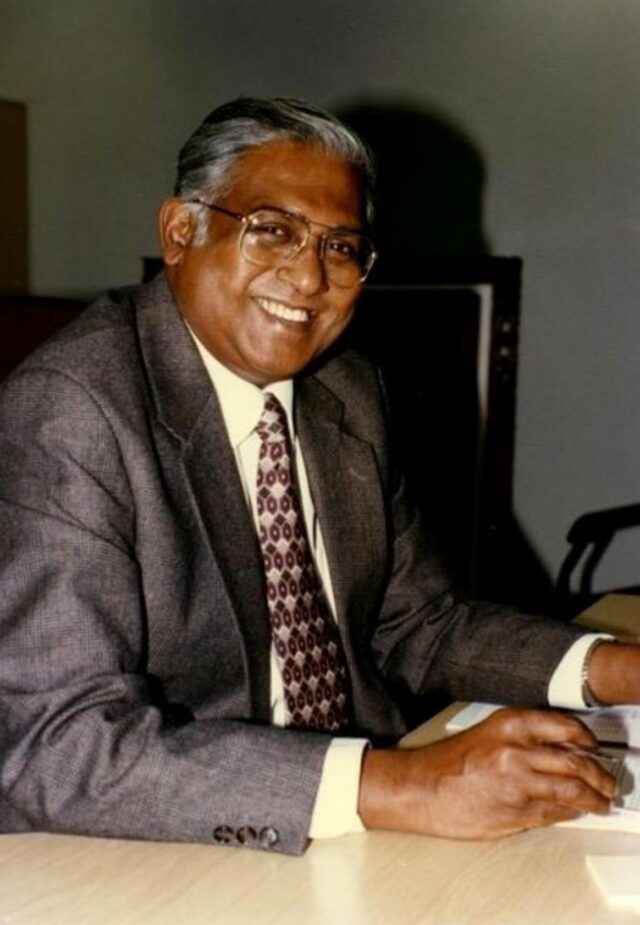
In his early 20s, Preman received a bachelor’s degree from Madras Christian College and a master’s from Oxford University (Mansfield College) prior to returning to Sri Lanka to marry his childhood sweetheart, Sherina. While teaching at TCL, Preman and Sherina welcomed their three children. Preman then continued his studies at Princeton Theological Seminary where he received a PhD in Old Testament in 1974.
After retiring from the CWM in 2002, Preman continued teaching as a visiting professor in several countries, including Hong Kong and the USA, as well as serving on the United Board for Christian Higher Education in Asia. Sherina and he also enjoyed travelling, visiting Kenya, Indonesia, South Africa, China and Israel to name just a few. In the last year of his life, Preman came to the United States to spend time with his children and grandchildren. He spoke frequently of missing his wife and often stated, ‘she will call me to join her when the time is right’. One year and 12 hours after Sherina’s passing, she called her husband to join her with their Lord.
Preman is survived by his three children, Damayanthi Niles, Radhika Niles and her husband, Richard Hopkins, Dharman and his wife, Sohini Roy, two grandchildren, Anders and Meera, and four great grandchildren. Preman also leaves behind a large extended family and numerous friends, whom he loved dearly. And we all loved him, despite his somewhat curmudgeonly disposition at times.
Damayanthi Niles, Radhika Niles and Dharman Niles
Chris Rivington OBE (1952-2024)
English, 1970
Christopher Edmund Thurston Rivington (English, 1970) died peacefully on 25th April 2024, after a brave struggle with cancer. A member of the Rivington publishing dynasty, Chris spent much of his career near Chesterfield, the birthplace of its founder, Charles Rivington (the publisher of Samuel Richardson and Daniel Defoe), having moved to Sheffield with the Manpower Services Commission (MSC) in 1981.
During his gap year between Charterhouse and Mansfield, Chris went to Dundee as a Community Service Volunteer, and this began a lifelong commitment to voluntary work. He later worked for International Voluntary Service (IVS) in a variety of local groups, painting and decorating for elderly members of the community, and helping to take disabled children riding.
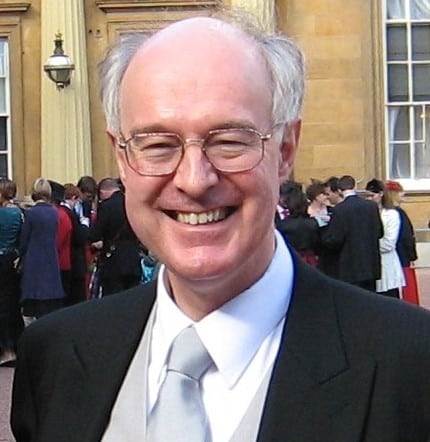
Professionally, Chris was a Fellow of the Institute of Personnel Management, and attained the role of Principal in his department. The MSC became the Department for Education and Employment and subsequently the Department for Innovation, Universities and Skills. Throughout his career, Chris was focused on creating and sustaining opportunities for disadvantaged people. He became passionate about young people’s training schemes and other vocational training projects. He was proud of his work in steering bills on post-16 education through parliament. And in recognition of his achievements in the Department he was awarded the OBE on his retirement in 2007.
In 1992, Chris married Dr Mary Elizabeth Holt, Consultant Rheumatologist at Rotherham General Hospital. They were married at St Mary Magdalene’s, Whiston, their local parish church, where they were both deeply involved. Chris served as a member of the PCC and for some years as PCC Secretary, and later Parish Safeguarding Officer. Following his retirement from the Civil Service, Chris accepted an invitation to join the Board of Trustees for Age UK Rotherham, on which he served with distinction for many years, including as co-chair.
Chris was diagnosed with mesothelioma, following lung lining biopsy, in 2015. How he had been exposed to the asbestos which caused it has not been established. For a number of years, the condition remained quiescent, but by the end of 2022 it had begun to spread. Chris had also suffered a stroke in November 2020; although he made a partial recovery, he was no longer able to write and became severely depressed. Yet despite all these challenges, he remained immensely brave and uncomplaining. He died at home on 25th April, with this wife Mary and sister Anne at his side.
Chris is survived by Mary, Anne, and his brother James.
David Ivorson (English, 1970)
Gordon Woods (1955 - 2022)
Geography, 1975
Of the many strands that ran through the rich, varied and happy life of Gordon Woods, who has died of cancer at the age of 66, three were intimately connected with his time at Mansfield: his love of geography, his passion for rowing and the camaraderie of the class of ’75.
Gordon and his brothers were born and brought up in Glasgow. He attended Glasgow Academy, making his own way across the city from a very young age. In 1964 the family moved to Durham. Gordon’s sense of belonging both to Scotland and the North East was an essential part of him and he has said that this duality made him British before anything else.
In Durham he attended Bow preparatory school and then Durham School where he began his love affair with rowing. He became Head boy and before going to Oxford rowed with Durham City Rowing Club.
Whilst at Oxford Gordon rowed as a Lightweight and stroked the boat to its wins over Cambridge in 1976 and 1977, incidentally Oxford’s last wins for 14 seasons!. He was also instrumental in getting the Women’s Boat Race moved to Henley following the Lightweights, significantly raising its profile. (Interestingly the Oxford Cambridge Boat Race was started by the first Warden of Glenalmond, Wordsworth, when he challenged his best friend to a race!)
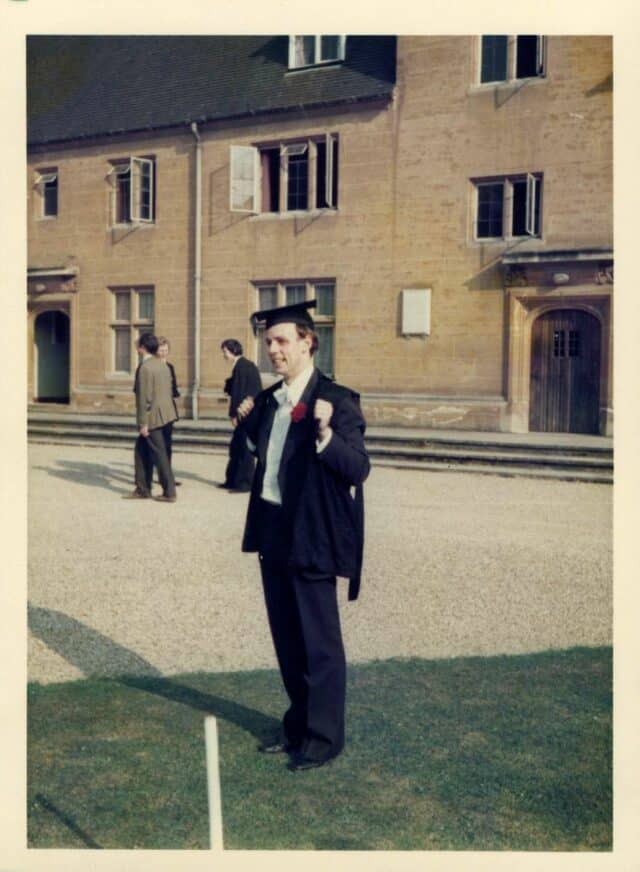
In his second year (76/77) Gordon shared the infamous top-floor flat in the College house at 212 Woodstock Road with two of us authors (below) and then in the third year an out-of-College flat with the other two. Chris and Steve laughed about the presence of lightweights visiting the flat and emptying the fridge.
In the summer of 1977, Gordon and John travelled to Salisbury (now Harare) to gather material for their undergraduate dissertations at the same time that Tony Lemon was on a research sabbatical at the University of Rhodesia. It was a fascinating and bizarre experience for all of them as the Rhodesian Bush War/Zimbabwe War of Liberation was nearing its peak. They stayed in student accommodation on the university campus and at weekends explored different parts of the country, often in areas that were insecure and, in retrospect quite risky. Gordon said, ‘I don’t know what possessed us. I certainly never told my mother!’ John recalls driving through mountain mist and thick vegetation of the Eastern Highlands (a well-known area when ZANU fighters crossed over from their bases in Mozambique) with the hauntingly beautiful music by the Chieftains on the car’s tape player.
After Oxford and a spell of teaching practice at Eton, Gordon joined the staff at Shrewsbury School, teaching geography and coaching rowing. He once said that he couldn’t believe his luck at being paid to teach the things he loved.
In Shrewsbury he met and married his devoted wife Emma. They started life together in School House where Gordon was assistant Housemaster; Head of Geography and Master in Charge of Rowing followed later. He then took on his own House, initially Oldham’s, then returning to School House before becoming Second Master (deputy Head). Life became very busy as in the midst of this arrived their children, first James and then Kate.
In 2003 Gordon took up the position of Warden (head) of Glenalmond College in Perthshire. When he and Emma moved north of the border there was a real sense that Gordon was returning to his roots. His parents would have been overjoyed. Although running a school becomes a much more challenging and heady mix of juggling numbers and finance and blue sky thinking, the role was still at heart about young people and their futures – about which Gordon cared deeply. Firm but always fair would be an apt description of his style.
Gordon took up golf – who wouldn’t with a course like the one at Glenalmond – and this was one of the things that he carried into his retirement after 2015 – along with school governing, charity work with the Shrewsbury Drapers, coaching rowing at the Pengwern and photography. During his last illness the club named a boat after him – an honour which he was extremely touched by.
Whilst he and Emma managed six splendid years of retirement together back near Shrewsbury, Gordon’s was a full life, sadly cut far too short. He will be missed.
Nick Atkinson, John Borton, Chris Frewer, Steve Thorpe (all Geography, 1975)

